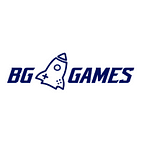While the gaming industry requires mastering a diverse array of disciplines, Unity has emerged as the most popular engine for development across console, mobile, PC, AR/VR and more. For aspiring creators interested in focusing their skills around this powerful toolset, here’s a Unity specialization roadmap by BG Games.
Fundamentals of C#
At the core of Unity is the C# programming language. Get extremely comfortable with C# fundamentals like classes, data types, control flow, functions, object-oriented principles, async programming patterns, and more. Understanding memory management, garbage collection, structs/references, coroutines, and delegates is crucial for efficient performance. Familiarize yourself with .NET libraries and frameworks too.
Unity’s Data-Oriented Architecture
With core C# literacy, dive into grasping Unity’s overall code and system architecture. The data-oriented technology stack (DOTS) with its job system, Burst compiler, ECS architecture, and C# job handling enables high performance, multithreaded, and data-locality optimized programming paradigms. While complex initially, DOTS mastery will serve you well.
MonoBehaviours and Game Loop
Unity centers around the powerful MonoBehaviour class for hooking code into core game loop events like Update, FixedUpdate, Awake, OnEnable, etc. Upskill on patterns for leveraging these inspector-configurable code behaviors alongside Unity’s lifecycle events. Tools like UnityEvents, Singletons, StateMachines, Scriptable Objects and more become essential.
Unity UI and Animation
Naturally, you’ll need expertise creating polished user experiences. Unity’s UI Toolkit facilitates building dynamic user interfaces with effects, animations, and event handlers. The universal animation system handles rigging, state machines, keyframing, blending, and combining multiple animation tracks. Master complimentary tools like Timeline, Shader Graph, and Animation Window.
Graphics and Rendering
Become fluent in Unity’s built-in and customizable shaders, materials, textures, Render Pipelines (URP, HDRP), lighting systems, and graphics APIs for achieving high fidelity, optimized visuals. Advanced skills like compute shaders, render texture effects, shadows, and post-processing are extremely valuable. Unity’s High Definition Render Pipeline will be your best friend.
Physics and Collision
No game is complete without realistic physics simulation. Study up on Unity’s PhysX system, rigidbody dynamics, collision detection, joints/constraints, articulated character rigs, vehicles, fluids, cloth, and hair systems. Mastering the new NVIDIA PhysX 5 via Unity is a wise investment. Physics are central to believable interactivity.
Audio System
Don’t underestimate the importance of pro-grade audio integration! Learn how to import audio files, apply 3D spatialization, build sound objects, tweak environmental acoustics, incorporate animations and curves into mixing, and leverage audio filters/reverb/chorus effects. Audio middleware like FMOD or Wwise are commonly used too.
Asset Management and Optimization
Behind the scenes, you’ll need skills effectively managing project assets, scenes, builds, lighting scenarios and overall optimization. Tools like Asset Bundles, Addressables, Prefab Variants, Geometry Instancing, Enlighten, and GPU Instancing will all boost efficiency. The WaveCast system handles art pipeline productivity.
Networking and Multiplayer
For real-time multiplayer gaming experiences, Unity’s UNet provides dedicated support for authoritative servers, RPCs, spawner systems, state synchronization, and HLAPI lobbies. Beyond built-in networking integration, you’ll want to utilize scalable server providers like Photon or Normcore.
VR/AR and XR Interaction
While optional based on specialization, modern game devs should grasp the emerging field of extended reality (XR). Unity enables building room-scale experiences on devices like Oculus, HTC Vive, Magic Leap, and mobile AR. Get fluent in capabilities like spatial mapping, avatar design, interaction models, and haptics integration.
Analytics and Live Ops
Last but certainly not least, you’ll need insight into Unity’s services for running successful “game as a service” operations at scale. Areas like Unity Analytics, Remote Config, Cloud Diagnostics, Data Automated Testing, and A/B use case evaluation are paramount for post-launch optimization.
While that list may seem daunting, you don’t need to become an expert in every single area overnight.
We firmly believe integrated education with practical application is key to retaining these critical Unity skills long-term.
In conclusion, building expertise as a Unity developer blends coding dexterity, cross-discipline fluency, and continuous professional development. It’s a rewarding path, but not always easy. Be patient, learn from mistakes, set new challenges, and BG Games is sure you will succeed!
